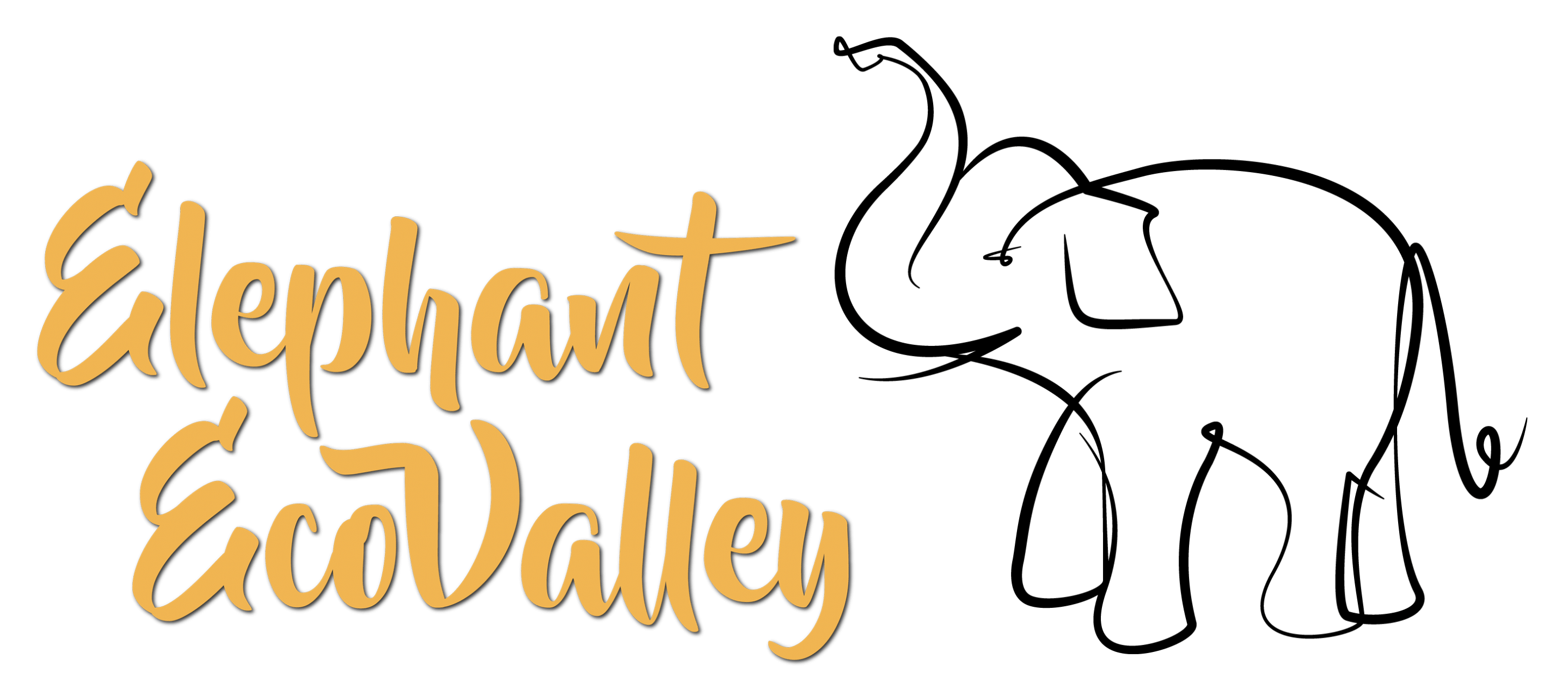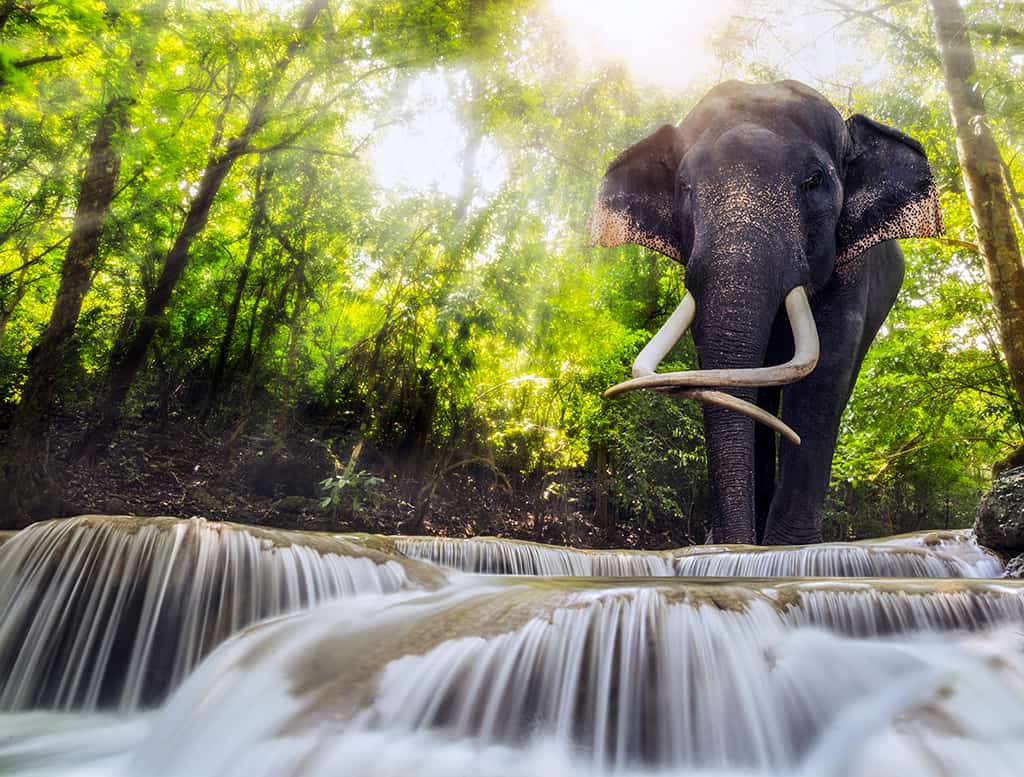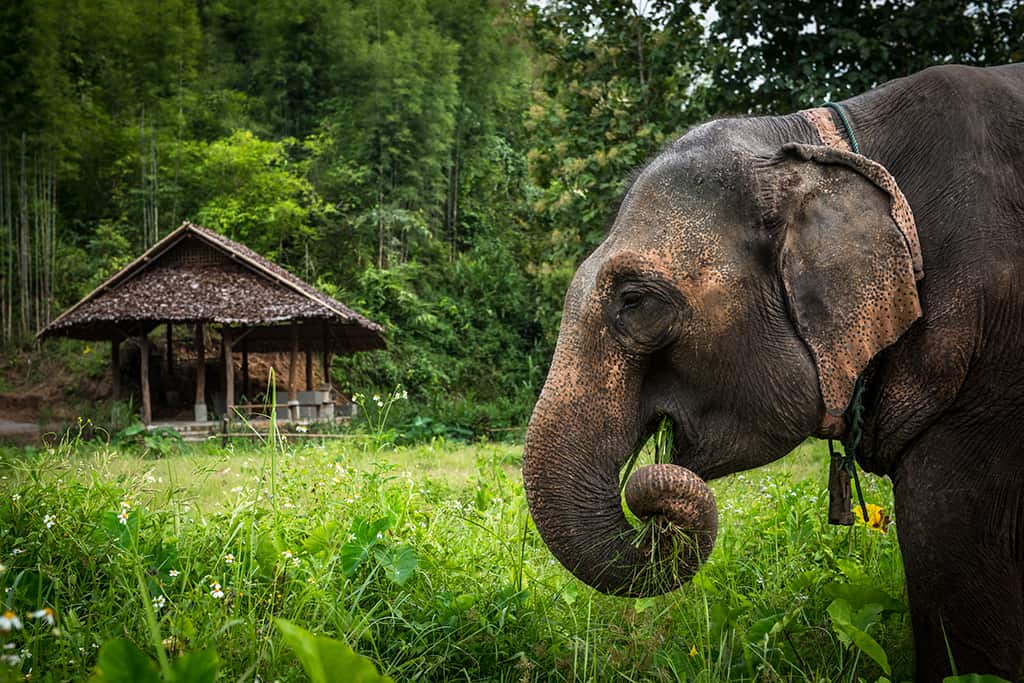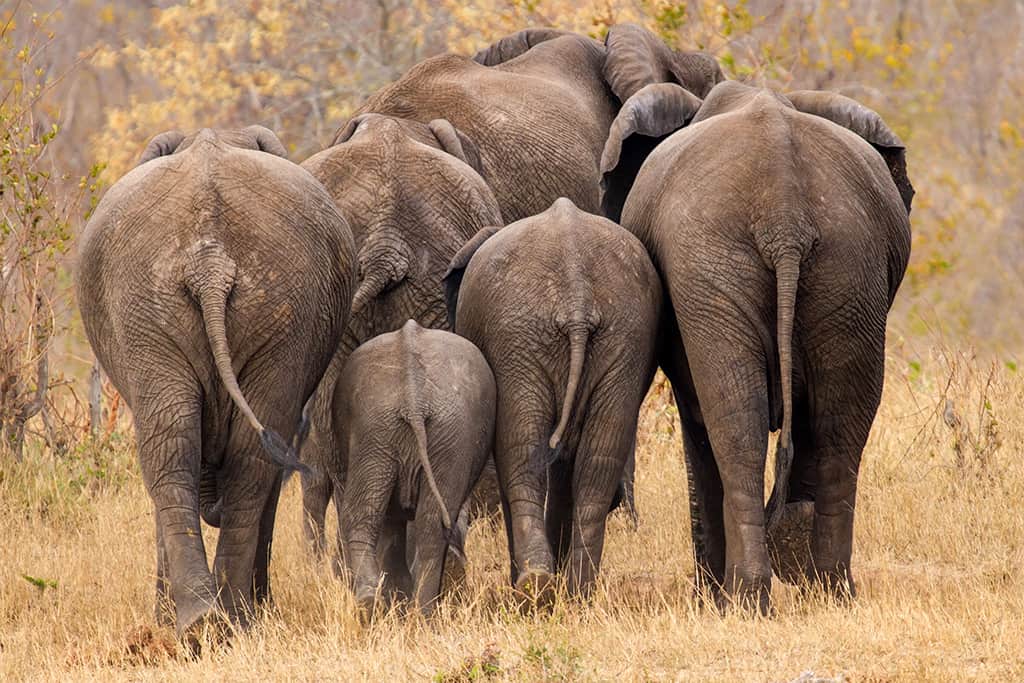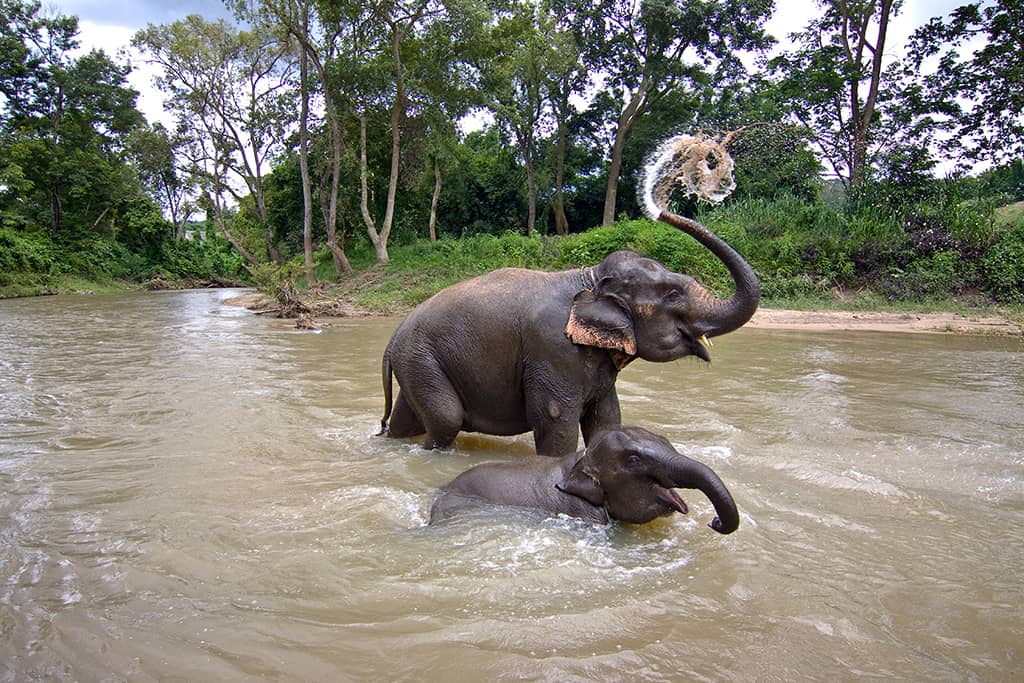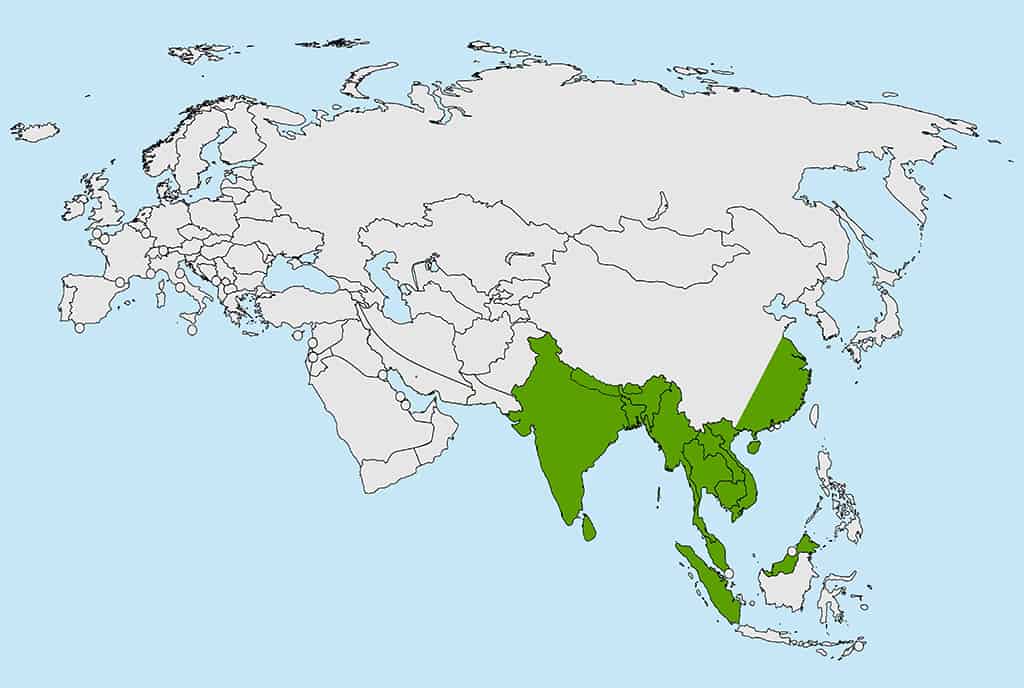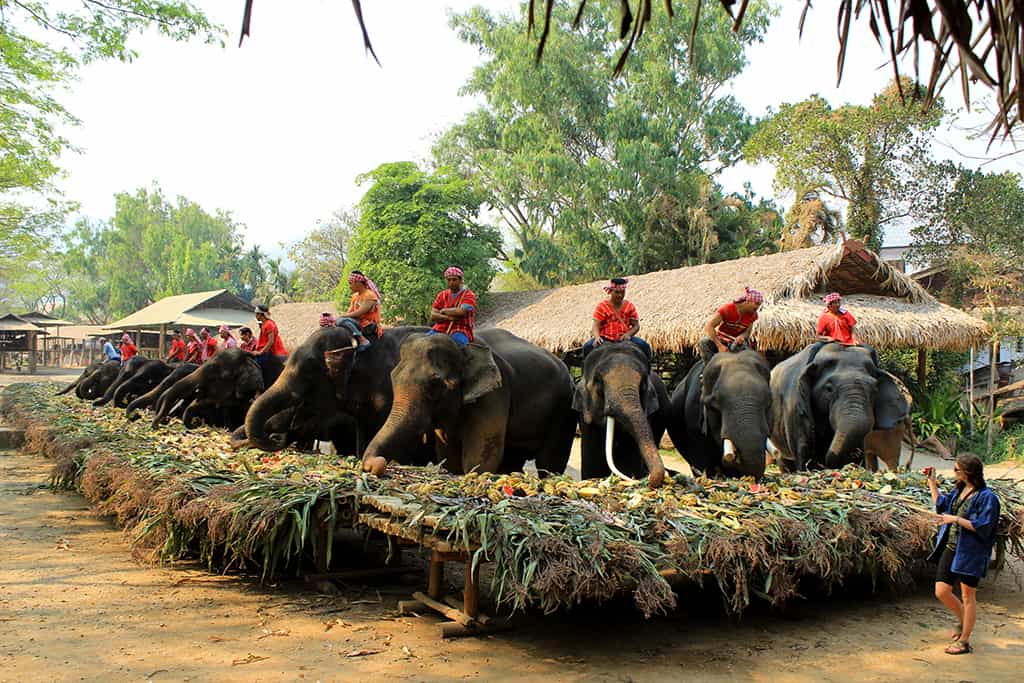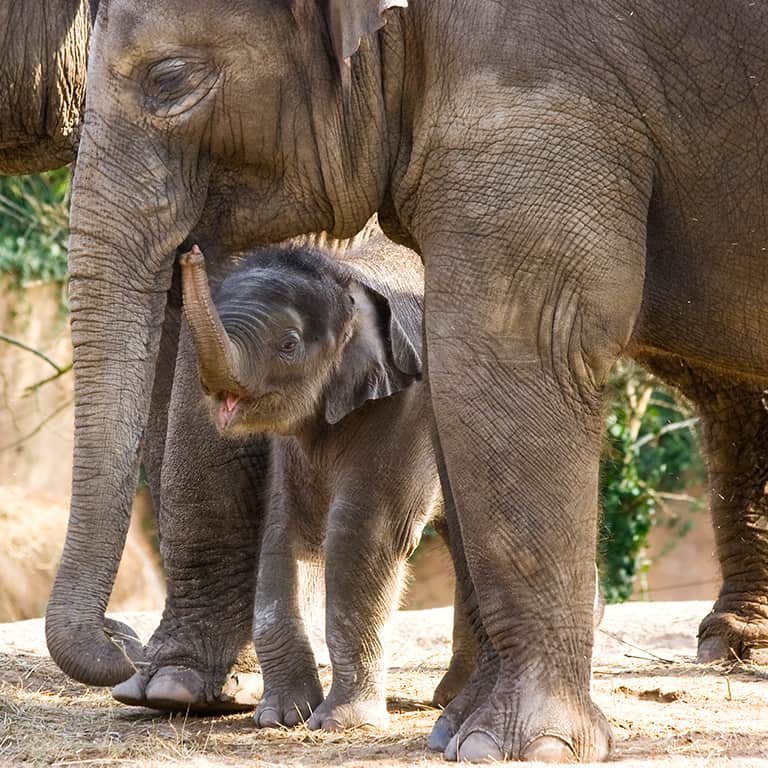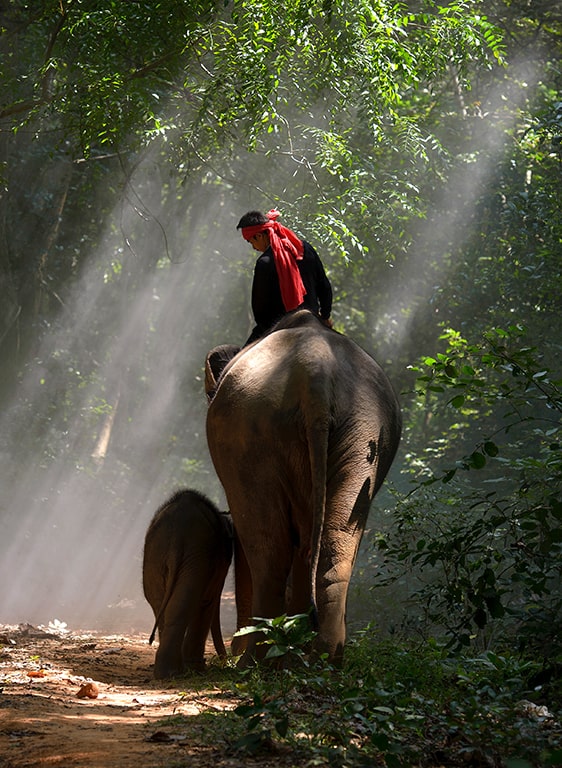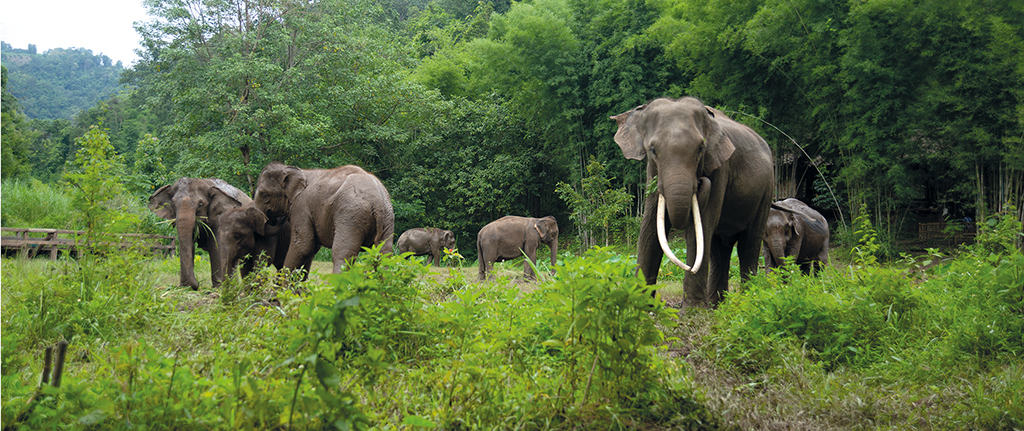
AMAZING ELEPHANT FACTS and FAQs!
Everything you’ve always wanted to know about elephants but haven’t met an elephant to ask. Come visit your new buddies at Elephant EcoValley in Chiang Mai, Thailand and experience these amazing elephant facts yourself!
How big do elephants grow?
Amazing Elephant Facts #1: Enormous. They are the largest land mammals on earth. Their height at the top of their back may be 2.3–3 meters (7.5–9.8 ft) and their length 5.5–6.4 meters (18–21 ft). The weight of adult elephants ranges from 2,500 to 5,000 kilograms (2.6–5.5 tons).
The elephant’s skeleton has evolved to bear its tremendous mass and equals about 16.5% of its total weight. In a 5,000-kilogram (5.5 ton) adult elephant, the skeleton alone may weigh 835 kilogram (1,800 lb).
Their entire vertebral column from skull to tail contains 60 to 70 individual vertebrae. Like all mammals, elephants have seven in the neck, but they are semi-flat, fused discs able to handle the heavy load of their head and tusks. Since the head is so huge, powerful muscles along the neck are necessary to help keep it upright. Similar to bird bones, the skull has a plethora of tiny air pockets to reduce weight.
(Photo © anekoho www.fotosearch.com)
How much does an elephant eat per day?
Amazing Elephant Facts #2: Several times more food than you weigh! Depending on their size, an Asian elephant can consume up to 300 kilograms per day (660 lb) or about 18% of their body weight.
What kind of food do they eat?
Don’t believe anyone who says you can’t grow tall and strong eating veggies! An elephant’s diet is completely vegetarian: grasses, small plants, bushes, fruit, twigs, tree bark, and roots. Bamboo shoots, seedlings and leaves are the favorite food of many elephants. Each day they may spend 16 to 18 hours feeding.
How many times do they poop?
Amazing Elephant Facts #3: Way more than you do, anywhere at anytime. Elephants defecate 10–20 times per day, producing 100–150 kilograms of dung (220–330 lb). Much of it is collected for poo paper making in Elephant EcoValley.
At Elephant EcoValley we make paper from poop!
Hello! I live near Chiangmai in northern Thailand with lots of my buddies. Every day we eat a huge variety of plants and fruit. Then with our own special technique, we transfer out our “raw fibers” onto the ground, wherever and whenever we want. Some of us eat 300 kilos per day and drop 100 kilos of poo!
Our two-legged friends treat the fibers by cleaning, blending, fermenting, and boiling. Finally they put a batch into a water basin, life out the goo with a framed screen, and dry it in the sun. Take some of my poo paper home today so you remember me forever!
Regards, Pooter the Elephant
(Photo © AOosthuizen www.fotosearch.com)
How much water do they drink?
Amazing Elephant Facts #4: Just like you, the hotter the day, the more they drink. An elephant may drink 160–200 liters (42–53 gal) of water per day, which produces about 50 liters (13 gal) of urine, depending on its size and the ambient temperature. Its trunk can hold about 10 liters (2.6 gal) at one time.
Do they drink with their trunks?
The elephant’s trunk is a “universal organ” with incredible abilities that seem like magic more than science. It’s a nose, hand, radar, and snorkel all in one. No bones, only muscles, nerves, blood vessels, tissue and skin — about 150,000 muscles! That’s about 200 times the 640 to 850 muscles in an entire human body.
What’s the main function of the trunk?
The tip is equipped with one or two lobes, which serve as “fingers”. Elephants can graze, hold food, and chew at the same time. They snatch up a bunch of grass, curl their trunk around it to form a bundle, smack it against their legs or chest to remove dirt, and take in a mouthful.
(Photo © numxyz www.fotosearch.com)
Do elephants talk to each other?
Body language using their heads, ears tail, and especially their trunks is their natural language. They do make low rumbles and roars to warn other elephants at long distances and high sounds such as trumpeting, barking, and snorting for communication at close range.
How long do they live?
40 to 65 years, though statistics vary on the lifespan of elephants. Some sources say Asian elephants live longer, some say African elephants. Life expectancy of any species (including humans) depends on heredity, environment, and the quality of care received. Elephants born or living in zoos might last less than 20 years because of lack of exercise, obesity and disease. The Guinness Book of World Records pegs the oldest elephant living until age 84.
When do females start to have babies?
Elephants reach maturity between the ages of seven and twelve years. Females normally bear their first calf when they are 10–20 years old. Gestation periods are more than twice that of a human mother: 21–22 months.
How long before baby elephants can walk?
Much quicker than you did! Within an hour of their birth, they can stand and soon after, swim. A baby elephant drinks milk from its mother’s two breasts for four to six years, until mom bears her next young. Now that’s one of the most amazing elephant facts! What if Mom lead you into the lake a half hour after you were born?
The baby elephant Moon rose on Earth in June . . .
One night at 3 am, the baby elephant Moon rose on Earth and joined the family near Chiang Mai, Thailand. One day she will play in the mountains at Elephant EcoValley. In this movie, Moon is two days old and learning very fast!
(Photo © Colette www.fotosearch.com; Video © SJ at Elephant EcoValley)
Are elephants on the endangered species list?
Yes, and they need our help to get off that list. Extinction? No. Conservation with care.The destiny of elephants is in the hands and hearts of humans. We have the power to protect or to poach, to treat and train elephants with compassion or with punishment, to save or to kill. We absolutely do not want any amazing elephant facts in the future that talk about the last elephants on earth!
The Center of Excellence in Elephant and Wildlife Research at Chiang Mai University explains the current situation: “By official definition, Asian elephants are an endangered species since they’ve had a decline of over 50% during the previous two generations. However, if we continue to protect the forest land we have, and reconnect some existing forests, our wild populations are large enough to sustain themselves.”
Can’t all elephants just be set free into the wild?
“Ideally, yes. But at this stage, there are just too many in captivity and not enough space to put them back into. Our current dilemma — which will be with us for at least 50 years — is how to manage these elephants as best we can.”
What can you do to help elephant welfare?
Choose experienced ethical elephant attractions, which follow humane policies and procedures, and have sufficient natural habitat to effectively care for its elephants — where elephants are in good hands.
The seventh patriarch of Thailand, the 28th son of King Rama the First, wrote this poem to the right. He was born on 11 December 1790 and became a monk at 12 years old. His words still ring true today.
when cattle and elephants die
horns and tusks as trophies remain
when humans die
hair and skin and everything within disappears
all that remains is the evil or goodness
of who they have been
(Photo © Nattaya Maneekhot)

Please contact us through the Whatsapp chat at the bottom of each page or phone Dao at [66] 86-923-3311 (English) or Ausa at [66] 94-764-0999 (Thai)
Kuet Chang, Mae Taeng District, Chiang Mai, Thailand 50150
Office Hours: 8 am to 9 pm, GMT+7
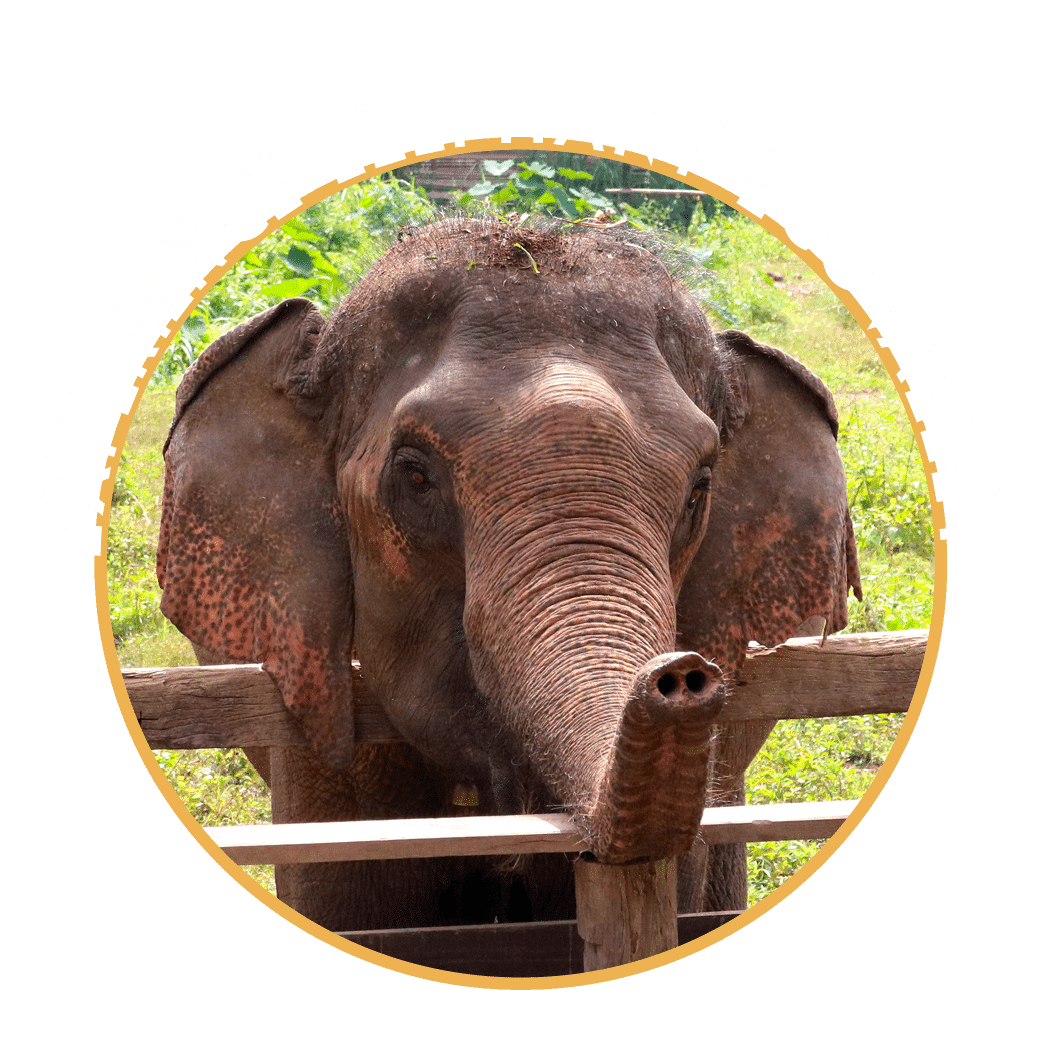
FOLLOW US!
Your personal information is private and sacred. We'd never sell or share it with anyone, anywhere, ever.
We told this to all of the elephants and they NEVER forget.
© 2025 Elephant EcoValley in Thailand. Come visit us!
